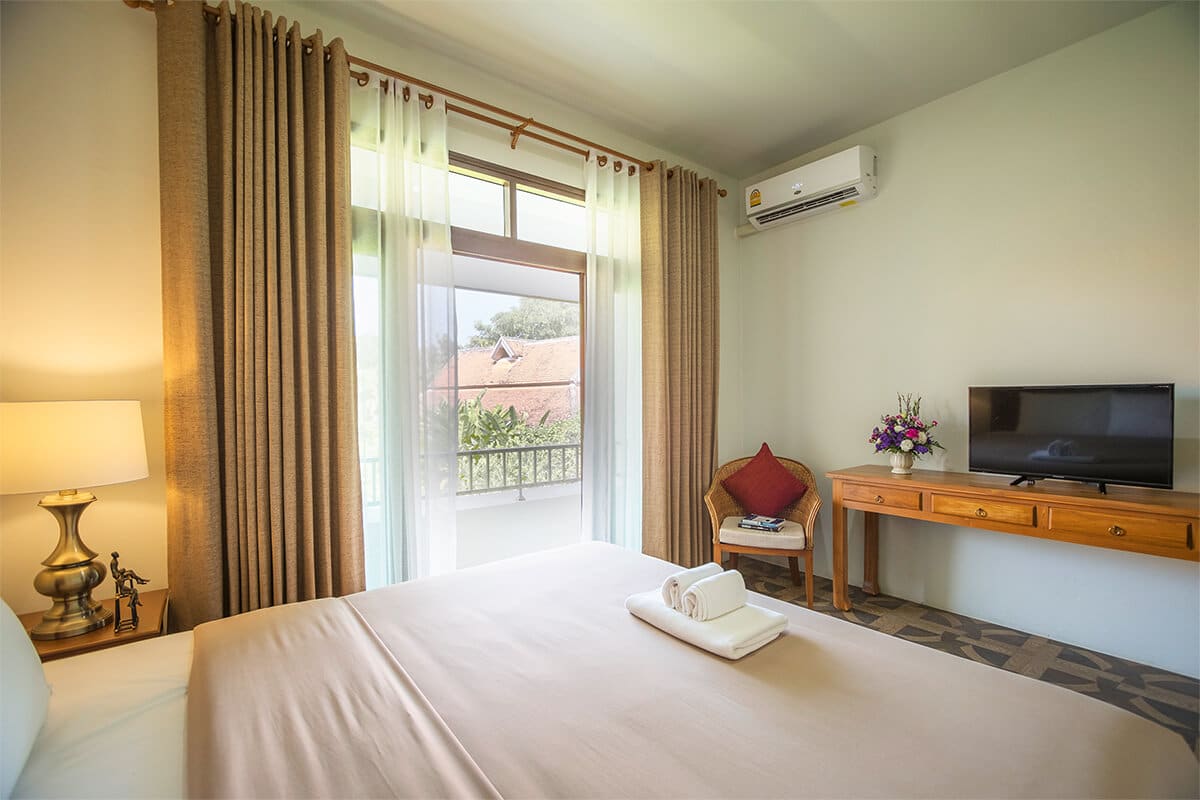When it comes to addiction treatment, there are realistically only two viable options that will give you a chance of success: inpatient and outpatient rehab. Attempting recovery alone almost never succeeds long-term. With failure rates so high, this approach is more of a perilous gamble than a reliable path to sobriety.
Inpatient care involves residing at a treatment facility where you’ll completely focus on recovery and sobriety skills. Outpatient provides periodic counselling sessions, but you continue to live at home, which for many isn’t an environment conducive to successful recovery due to the presence of triggers and lack of round-the-clock support.
Outpatient programs can be a little less intense and are more flexible. Still, the level of individualised care, coping skills development, and complete immersion in inpatient treatment programs have been shown to lead to better addiction recovery outcomes. Those with dangerous substance dependencies or dual diagnoses almost always benefit more from the intensive residential approach of inpatient rehab.
For those who are seriously committed to achieving long-lasting sobriety after treatment, inpatient rehab, like The Dawn Wellness Centre and Rehab in Thailand, is usually the best way forward.
Why Inpatient Programs Are Superior to Outpatient Programs
While this guide offers a comprehensive look at both inpatient and outpatient rehab options, we want to start by making a case for why inpatient programs tend to lead to better addiction recovery outcomes.
- Inpatient rehab removes individuals from environments where triggers and stressors may enable continued substance abuse. Outpatient care allows exposure to these risks on a daily basis.
- Being immersed in a structured rehab environment makes it easier to form long-lasting habits and coping mechanisms to support sobriety after treatment. Outpatient care lacks this level of rigorous structure and accountability.
- Inpatient facilities provide 24/7 monitoring and support from medical professionals trained in addiction treatment. Outpatient care is limited to periodic appointments without round-the-clock supervision.
- Medication and psychological therapies are administered more frequently and effectively in an inpatient setting. The intensity of outpatient programs often fails to properly address severe cases.
- Relapse rates tend to be lower for those who complete inpatient rehab. For individuals with dangerous addictions, the probability of relapse with outpatient care remains worryingly high.
- The level of care, support system, stability, and treatment intensity offered by residential inpatient rehab facilities lead to better recovery outcomes in most addiction cases. While outpatient treatment works for some, inpatient rehab is the gold standard for comprehensively treating substance abuse and co-occurring disorders.
What is Inpatient Rehabilitation?

Inpatient rehab, also known as residential rehab, offers a safe and undisturbed setting for drug and alcohol addicts to fully concentrate on recovering from their addiction. Clients at an inpatient rehab centre typically stay for about 30 to 90 days or 1 to 3 months. Many who are addicted to drugs or alcohol search for an inpatient rehabilitation programme, as inpatient treatment is specifically designed to promote the type of lasting behavioural changes that are necessary for recovery.
The main defining trait of this type of rehab is having the addicted person reside at a specialised facility throughout the duration of their treatment, as though they are staying in a hospital. Most residential programmes for rehab last the full course of around 30-90 days, but the length of stay depends on the specific needs of the client, as well as their personal preferences.
Typically, we can divide inpatient rehabs into three tiers:
1. Detoxification:
Most inpatient rehab programs start with a complete drug or alcohol detox. At The Dawn, all our patients undergo a pre-treatment assessment on whether detoxification is required. If yes, they then go through a medically supervised detoxification program. After recovery, the individual treatment program begins.
2. Short-term programs:
These programs are designed for individuals who struggle with less severe addictions but require a high level of support provided by rehab centres like The Dawn. These programs usually last for 30 days and include medically supervised detoxification and a personalised treatment program.
3. Long-term programs:
Such programs are crafted with more severe addiction cases in mind. They also include detoxification and a personalised program, but they last longer (even up to 3 months) and involve in-house aftercare support to decrease the chances of relapse.
If you are entering rehab yourself, know that your experience as an inpatient will give you the highest level of comprehensive care, involving a full range of treatments to help you make a complete recovery.
By Choosing Inpatient Rehab, You Will Undergo the Following:

- Psycho-Education and Coping Skills:
During your stay in the residential facility, you will learn about the disease model of addiction, address underlying issues that may have led you down the path of addiction, and develop the mental resources needed to live in sobriety as a drug-free and/or alcohol-free individual. - Medically Supervised Detoxification:
The long-term use of addictive substances can cause physical dependence. This phenomenon occurs when the central nervous system becomes reliant on a certain type of drug, such as benzodiazepines and opioids. The need for medical detox is determined through a pre-treatment assessment that is handled by the rehab centre of your choice. - What Happens After Detox:
Detoxification alone won’t result in long-term recovery or sobriety, which is why detox represents just a single step in the process. Complete care and recovery includes different treatment methods, such as cognitive behavioural therapy, eye movement desensitisation and reprocessing, and many other evidence-based techniques. - Addressing Psychological Addiction:
Any comprehensive drug or alcohol addiction rehab programme will address the psychological aspects of your substance dependence. Treatment typically involves group therapy along with individual counselling and behavioural therapy. - Costs of Rehab:
Inpatient therapy can be expensive because it means staying in the facility for several weeks to receive treatment. Rates for staying in a private or shared room can also vary, with private rooms being more costly. This is why many addicts travel overseas for a more affordable inpatient rehab centre. You will also have an opportunity to enjoy interesting local cultural activities, as many rehabs offer fun excursions as part of their inpatient treatment programmes.
More about the Detoxification Programme
At the beginning of rehabilitation or the recovery process, you’ll undergo a period of monitored, structured detoxification before commencing the psychological training aspects of addiction treatment. The detox process can vary depending on the type and severity of the addiction. Much of this variation involves the following issues.
- Detox from Outside the Facility:
There are cases where clients are required to undergo detox offsite – for example, at a standalone detox clinic or a hospital. However, many residential or inpatient programmes incorporate a structured detoxification service into their treatment protocol. - Use of Medication in Detoxification:
Whether you undergo detox onsite or offsite, medications are often used to ameliorate your withdrawal symptoms, some of which can otherwise be life-threatening. However, not all instances of detox require medication. Detox is particularly important for cases of severe addiction or dependency on more than one substance. - A Shift in Focus After Detox:
Once detoxification has ended, your treatment for addiction will continue. After allowing time for your body to clear away the toxins and recover some measure of stability, inpatient treatment begins to focus on skills development to help you stay sober for the long term. - Settling into a Healthier Lifestyle:
You’ll be taught how to overcome your addictive tendencies, which may have developed through some combination of genetics, the environment, your brain and body, and your own personal experiences. You’ll undergo counselling, therapy, and education to prepare you for a new and healthy lifestyle.
What is Outpatient Rehabilitation?

Unlike intensive inpatient programs, outpatient treatment allows you to continue living at home while attending periodic therapy sessions. This can seem more convenient, as people can maintain their regular schedules and activities. However, this freedom comes at a major cost.
The periodic counselling sessions often more closely resemble doctors’ appointments than an addiction recovery program. For many people, returning home every day means exposure to triggers, stressors, and peers that enable continued substance abuse.
The flexibility of outpatient treatment is often cited as a major benefit so patients can keep up daily routines. From our experience, maintaining “regular lives” is often precisely the problem for people with an addiction. The lack of disruption and emphasis on external responsibilities in outpatient care simply does not force the intense inner focus and structure change shown to help people achieve sobriety long-term after intensive treatment.
Saying this, for some people, outpatient care is the only option, and it isn’t off the table as a viable solution to curb their addictions. What’s most important is seeking out professional treatment rather than trying to self-cure.
Outpatient care isn’t suitable for everyone, however – especially those who are severely addicted and require monitored medical detox. This type of rehab is also not recommended for individuals who have chronically relapsed before.
Types of Outpatient Rehabs
Outpatient programs are typically divided into three primary categories:
- Standard Outpatient Programs (OP):
These are standardised programs that usually involve regular weekly therapy sessions. Standard outpatient programs are a good fit for individuals struggling with less severe addictions or those on a step-down program after completing an intensive addiction treatment. - Intensive Outpatient Programs (IOP):
Such programs offer an increased level of support with more frequent therapy sessions – typically 3-5 times a week. These programs are dedicated to patients who require more comprehensive and structured treatment without sacrificing their private and professional responsibilities. - Partial Hospitalisation Programs (PHP):
This is the most intensive outpatient program. PHPs often involve daily therapy sessions and are designed to battle more severe addictions and co-occurring mental health issues.
Outpatient programs often include various types of therapies, including individual psychotherapy, group counselling, family therapy, and support groups. During these programs, patients can also take advantage of medication management and detox support.
At Outpatient Rehabs, You Can Expect the Following:
- Lighter Schedules for Recovery:
The most intensive outpatient rehab schedule involves attending treatment for 2-4 hours every day. With such a routine, you can continue to study or work during the day, and return to your house every night. Outpatient rehab allows people to stay active in society and keep their lives moving forward without any long-term break. But, for some people, especially those with severe addiction or in challenging home environments, this kind of rehab might not be enough. - More Flexible Treatment Options:
Compared to inpatient treatment, which involves constant monitoring by doctors in a secluded facility, outpatient treatment offers a great deal more flexibility and freedom. Unfortunately, when given this flexibility and freedom, not everyone has the self-control needed to stay on track. - Structured Therapy Methods:
While outpatient programmes may incorporate 12-step programmes or certain aspects of them, they’re not the same thing as Alcoholics Anonymous meetings. Outpatient treatment centres offer many other types of intensive therapy and intervention methods in both individual and group environments. These sessions address the underlying causes of addiction while at the same time teaching the skills needed to live in sobriety. - Weekly Routines:
You can attend these therapy sessions with your counsellor or psychiatrist on a daily or weekly basis instead of having to stay overnight in a facility that keeps a set schedule. On the other hand, an outpatient program’s flexibility means there is little accountability for patients between appointments. This makes it easy to skip or put off sessions, receive more sporadic care, and ultimately derail the addiction recovery process. - Similar Counselling (But Fewer Other Services):
You’ll receive the same type of counselling as with inpatient services, albeit in lesser amounts. Outpatients, however, must go without detox, dual diagnosis support, and standard aftercare programmes. The 24/7 monitoring that inpatient care provides is also absent from the outpatient experience, along with the room and board. For better or worse, outpatients also have more control over their diet, whereas inpatients eat from the menu at their residential rehab centres. - Greater Availability:
Although a local outpatient clinic may offer added convenience, overseas options provide a certain financial and cultural appeal as well. By attending a foreign rehab centre as an outpatient, you can benefit from therapy while at the same time vacationing in the region where the treatment is located. - Less Commitment, More Dedication:
Without doctors and therapists to continuously monitor your behaviour, clients must rely on themselves to stay on track between counselling sessions. With greater freedom comes greater responsibility, and outpatients’ success in maintaining sobriety depends on their ability to stick to the programme and follow the schedules that they have agreed to.
Inpatient vs Outpatient Rehab: Pros and Cons

No single treatment type fits the needs of all addicts. When choosing whether to attend a residential or outpatient substance abuse programme, you should consider the pros and cons of both.
The Pros of Inpatient Rehab for Drug and Alcohol Addiction Include:
- Intensive individual and group therapy sessions.
- Addiction trigger and stressor exposure mitigation.
- Staying in a secluded facility that serves as a sober and stable environment.
- Focused support from rehab staff to reach and maintain sobriety.
- Reduction of relapse risk because the secluded environment and vigilant monitoring help keep you substance-free.
- A higher chance for success in recovery and sobriety because the inpatient treatment is more intense.
- Dual diagnosis treatment of both the addiction and any co-occurring conditions are addressed (depends on the facility).
- The opportunity to choose a luxury centre that provides upscale amenities at affordable prices. Accommodation may also be available that meets the needs of business executives if required.
- Specialised treatment services such as animal-assisted therapy, meditation, exercise, diet, yoga, acupuncture, and holistic healing (depends on the facility).
- Monitoring your psychiatric and medical needs during withdrawal and recovery for those with long-standing, severe substance abuse disorders or co-occurring conditions.
The Cons of Inpatient Rehab for Drug and Alcohol Addiction Include:
- Limited access to the outside world.
- Having to take time off from home, work, or school responsibilities.
- Higher treatment expenses because room and board are included in the package.
- Limited support from your loved ones such as friends, family and a partner.
The Pros of Outpatient Rehab for Drug and Alcohol Addiction Include:
- Being able to attend work, school and personal obligations while receiving addiction treatment.
- Having your support network from loved ones more easily accessible.
- Cost reduction because you won’t have to pay for room and board when undergoing outpatient rehabilitation.
The Cons of Outpatient Rehab for Drug and Alcohol Addiction Include:
- No 24-hour-a-day, 7-days-a-week care and treatment.
- Longer duration of treatment time.
- Risk of being exposed to the same influences and triggers in your life that pushed you towards drugs or alcohol.
- A higher probability of relapse if the home environment is stressful, unstable, or filled with enablers.
- Depending on the substance the person is addicted to, outpatient detoxification may be insufficient to adequately account for life-threatening withdrawal symptoms and complications.
- Daily life distractions and responsibilities can be a hindrance to an addict’s recovery.
- Easy access to substances means small setbacks can quickly spiral out of control.
- Not suitable for those who are severely addicted, have previously relapsed or need supervised medical detox.
Deciding Between Inpatient and Outpatient Treatment
Getting help for drug or alcohol addiction is one of the most important choices you can make for yourself or for a loved one. Choosing the right type of programme can initially feel overwhelming, but it is worth spending some time considering your options.
You should take into consideration several factors before making your choice in terms of outpatient or inpatient rehab. You should understand these factors and how they might determine the best treatment choice for you. Before committing to one type of rehab programme or another, ask yourself:
- Does the addicted person have friends or family members who use drugs or drink alcohol around them?
- Can the addicted person drive or commute from home to the facility several times every week?
- Is the addicted person’s living environment stable and supportive of sobriety?
- Does the addicted person have a strong support network that will help them remain motivated to stay sober?
- Can the addicted person leave work, school, or home duties for a period of time (usually 30 to 90 days)?
- Is the addicted person exposed to drugs or alcohol in their everyday life or local environment?
- Does the addicted person have mental or medical health issues that require specialised treatment for co-occurring disorders, otherwise known as dual diagnosis?
If you can juggle your work or school life with your addiction rehab because it’s not that severe, then you may be able to manage with outpatient rehab. However, for those dealing with dangerous addictions or relapse-prone conditions, inpatient care is almost always the best decision.
It’s important to honestly identify and admit the severity of your substance abuse problem in order to determine which type of rehab therapy is most likely to succeed. Persistent addictions or dual diagnoses require intensive, immersive treatment with strict accountability in order to fully focus on recovery skills.
While outpatient programs offer more flexibility for less severe cases, comprehensive inpatient rehabilitation is the gold standard for treating addiction and co-occurring disorders. The controlled environment, peer support, medical supervision, counselling, and life skills training provided by residential treatment facilities give patients the tools needed for long-term sobriety.
There’s also the issue of aftercare support. Inpatient programs, such as The Dawn, offer comprehensive in-house aftercare and relapse prevention programs. This approach allows our patients to undergo the first substance-free period in a safe and trigger-free environment, significantly decreasing the chances of relapse.
Outpatient programs don’t provide the same level of constant support and oversight. After finishing such a program, you are still surrounded by triggers, which can cause relapse. Therefore, a better idea might be to undergo intensive inpatient treatment and then sign up for an outpatient program as part of your step-down program – which is something many people do.
Whichever method you may consider, the priority should be selecting a rehab program that provides customised, holistic treatment addressing the multiple facets of addiction.
But, intensive inpatient rehabilitation is almost always the most effective way to achieve lasting recovery and gain sobriety. The investment is well worth it.
Why You Should Go to Inpatient Rehabilitation Overseas

A more affordable inpatient rehab centre allows you to afford a longer stay, which increases your chances for sobriety and long-term recovery. Rehabilitation in another country also allows you to get far away from the sources and triggers of your addiction, letting you build the skills needed to reintegrate yourself into society upon your return.
Medical tourism, which covers surgery tourism, dental tourism, and rehab tourism, recognises that in other countries, medical procedures are much cheaper than at home. Even after considering travel costs, an overseas rehab experience can offer significant savings while still maintaining international standards of care.
With medical tourism in general and rehab tourism in particular, you can enjoy your vacation time while also working to improve yourself. Inpatient treatment mostly occurs in a secluded space, but after completing your course, you can continue travelling and exploring the region. It’s an excursion tour and treatment in one package, giving you something positive to look forward to as you recover.
Inpatient Addiction Rehabilitation Programme at The Dawn Rehab

Located in Chiang Mai, Thailand, The Dawn Rehab is among Asia’s best for inpatient drug and alcohol addiction treatment.
Our clients receive high-quality addiction treatment and receive care from a licenced team of counsellors, nurses, doctors, and psychiatrists – all while staying in affordable yet high quality accommodation. We also offer integrated treatment for co-occurring conditions that often accompany addiction disorders.
Contact us today and start your journey to recovery!
Related Posts
 Alcohol Detoxification Process in an Alcohol Rehab
Did you know that in the U.S., 17.6 million people suffer from alcohol use disorder or AUD? However, sadly, only a fraction of those Americans seek assistance from a professional...
Alcohol Detoxification Process in an Alcohol Rehab
Did you know that in the U.S., 17.6 million people suffer from alcohol use disorder or AUD? However, sadly, only a fraction of those Americans seek assistance from a professional...
 Best Rehab in Thailand? Monastic, Budget or Holistic?
When seeking an overseas rehab centre, Thailand has become the top destination among Australians, Brits, Europeans, and Americans. Rehabs in Thailand offer addiction and mental health treatment to people from...
Best Rehab in Thailand? Monastic, Budget or Holistic?
When seeking an overseas rehab centre, Thailand has become the top destination among Australians, Brits, Europeans, and Americans. Rehabs in Thailand offer addiction and mental health treatment to people from...
 The Cost of Addiction Treatment in Australia
Addiction is a complex illness that affects millions of people globally, including Australians. It can have devastating effects on individuals and their families, including physical, emotional, social, and financial consequences....
The Cost of Addiction Treatment in Australia
Addiction is a complex illness that affects millions of people globally, including Australians. It can have devastating effects on individuals and their families, including physical, emotional, social, and financial consequences....
 Mental Health Treatment: Long-Term Inpatient Care or Outpatient Therapy?
Making the decision to seek outside help for a mental health issue is an important first step. The next is determining which type of treatment is right for you. Moving...
Mental Health Treatment: Long-Term Inpatient Care or Outpatient Therapy?
Making the decision to seek outside help for a mental health issue is an important first step. The next is determining which type of treatment is right for you. Moving...





